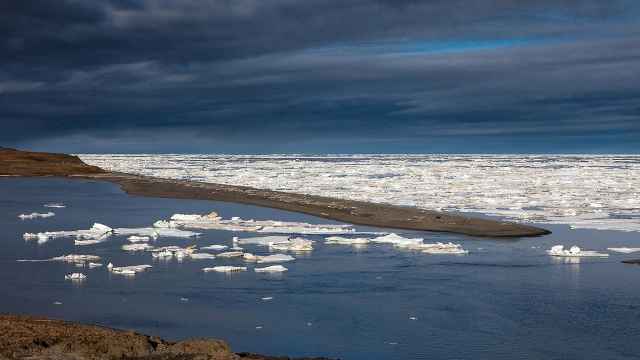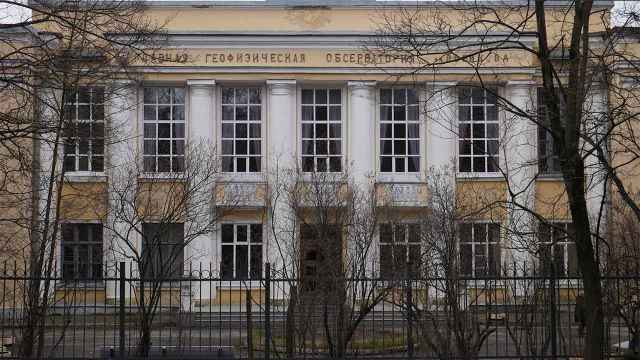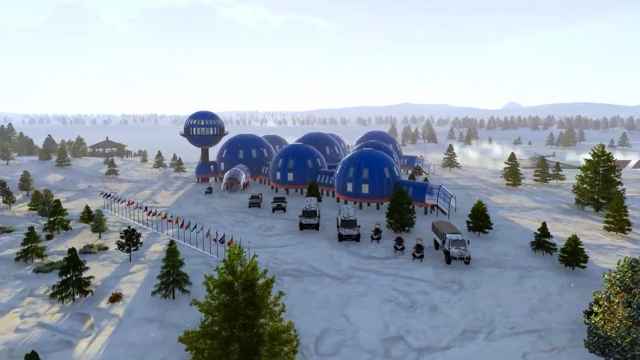Russia recorded an all-time heat record above the Arctic Circle on Saturday as Siberia continues to swelter under a historic heatwave, according to Russian weather data.
The extreme weather in the town of Verkhoyansk comes as Siberia has seen a prolonged heatwave linked to wildfires, a massive oil spill thought to have been caused by melting permafrost, crop failures linked to drought and an infestation of tree-eating moths.
The 38 degrees Celsius recorded by the Pogoda i Klimat weather portal in Verkhoyansk on June 20, if accurate, may have set a new record for anywhere in the Arctic Circle, meteorologists say.
The current record high temperature north of the Arctic Circle of 37.8 C was set in Fort Yukon, Alaska, in June 1915.
Verkhoyansk holds the Guinness World Record for the highest recorded temperature range of 105 C, fluctuating from minus 68 C to a high of 37 C. The previous temperature record for the isolated town of around 1,300 residents stood at 37.3 C in July 1988.
The gas-rich town’s forecast for the rest of the week hovers in the low-to-mid 30s C, a full 10 degrees warmer than its average highs for late June.
Russia has just experienced its warmest winter in 130 years and its capital Moscow broke a 128-year heat record last week.
Parts of Siberia saw temperatures higher than average this spring, with some towns in the Arctic Circle beating their previous records by double digits and temperatures reaching the mid-20s and low-30s. May alone was up to 10 degrees Celsius warmer than average.
Sergei Semyonov of the Yu. A. Izrael Institute of Global Climate and Ecology in Moscow said that such heat waves aren't necessarily new to Siberia, but that climate change is increasing their severity and length.
"This [heat] could have an impact on wildfires. It's not just important to take care of the trees, but also of people. Local forest crews and workers can barely endure such weather, for example," he told The Moscow Times.
Andrei Kiselev, Ph.D., a leading climatologist at the Voeikov Geophysical Observatory in St. Petersburg, said it's no longer possible to prevent climate change altogether and that efforts to adapt to the changing climate should be prioritized instead.
"Special building technology can be developed for new constructions in permafrost zones. ... And it will be necessary to adapt existing infrastructure to the changing environment," he told The Moscow Times.
Scientists told The Guardian that Russia, which is warming more than twice as fast as the rest of the world, has experienced record temperatures in January-May 2020. Average temperatures, which are 5.3 С above the 1951-1980 average, have surpassed the previous record by a "massive" 1.9 C, Berkeley Earth project lead scientist Robert Rohde said.
Scientists expect 2020 to rank among the world’s five warmest years in recorded history.
A Message from The Moscow Times:
Dear readers,
We are facing unprecedented challenges. Russia's Prosecutor General's Office has designated The Moscow Times as an "undesirable" organization, criminalizing our work and putting our staff at risk of prosecution. This follows our earlier unjust labeling as a "foreign agent."
These actions are direct attempts to silence independent journalism in Russia. The authorities claim our work "discredits the decisions of the Russian leadership." We see things differently: we strive to provide accurate, unbiased reporting on Russia.
We, the journalists of The Moscow Times, refuse to be silenced. But to continue our work, we need your help.
Your support, no matter how small, makes a world of difference. If you can, please support us monthly starting from just $2. It's quick to set up, and every contribution makes a significant impact.
By supporting The Moscow Times, you're defending open, independent journalism in the face of repression. Thank you for standing with us.
Remind me later.






